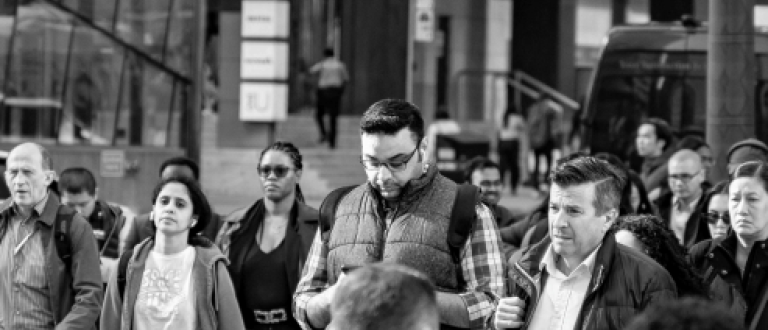COVID-19 has impacted charities across the country as they try to pursue their missions amidst dual health and economic crises.
Our research shows that 42% of charities have created new programs and 54% have transitioned in-person programs online since the beginning of the pandemic. In other cases, organizations have been forced to suspend or cease programs. This blog post, which is the final in a series sharing sector COVID-19 impact stories, explores how organizations have changed their programs and services in response to the pandemic.
*Hey - before you read this post, show your support for the sector by taking 60 seconds to send a letter to Justin Trudeau asking for a grant stabilization fund which would provide a vital lifeline to ensure charities and nonprofits will be here to support communities through this pandemic and into recovery.
Click here to send*
1. Advocating for an inclusive COVID-19 approach
The Burnaby Association for Community Inclusion, which serves people with developmental disabilities and their families in Metro Vancouver, is no stranger to advocacy work. However, when the COVID-19 pandemic began, they focused their advocacy efforts on a new area - ensuring that the COVID-19 response is inclusive. For example, they have done work educating public health authorities about the importance of having hospital triage protocols that take into account the needs of those with developmental disabilities.
2. Finding new ways to support vulnerable citizens
WISH Drop-In Centre Society supports sex workers in Vancouver's Downtown Eastside. Many of these women are experiencing a complete loss of income at the same time that there is a loss of safe spaces for women, leaving them increasingly vulnerable to theft and exploitation. In response, WISH has converted the parking lot behind their drop-in centre and offices into a 24hr respite space for women that includes washrooms, allows for physical distancing, and peer witnessing to prevent against accidental overdoses.
3. No camp this summer - at least not in-person
In Nova Scotia, Brigadoon Village, Canada’s largest pediatric illness camp, made the difficult decision to cancel all in-person camp programming for this year after consulting with public health officials and their medical community. This means that more than 800 children will miss out on a magical and transformational camp experience. However, they have created a ‘Virtual Village’ and will do their best to deliver programs online to help kids connect with the community, gain a sense of empowerment and get a better understanding of their diagnosis.
4. Finding new operating models
In Saskatoon, Community Legal Assistance Services for Saskatoon Inner City (CLASSIC) is a community legal clinic that normally delivers its services in tandem with its Student Training & Education Program where law and social work students receive course credits for CLASSIC’s experiential, clinical teaching. When those students were no longer permitted to work on site due to University policies, CLASSIC had to pivot their service delivery model by developing a staff-only model and, after a brief pause in taking on new cases, have been able to continue to serve low-income, marginalized and vulnerable community members in Saskatoon.
5. The show can’t go on
Tap Centre for Creativity is an arts organization that supports emerging artists and puts on cultural events in London, Ontario. Due to social distancing rules, their planned theatre performances, exhibits, classes, and annual Ting Comic and Graphic Artist festival have all been cancelled. They are continuing to offer limited content online, but anticipate a slow recovery due to COVID-19’s financial impact.
6. Staying the course
British Columbia’s The Knowledge Network, a publicly funded television network, made a conscious and public decision to not change its programs in response to COVID-19. They felt that the public would be facing a pandemic information overload and wanted to act as an oasis from the deluge.
7. Going above and beyond to serve kids
The Boys and Girls Club of Central Vancouver’s programs centre on face-to-face interactions with children and youth. Beyond continuing their normal programming in a digital format, the team is also finding funds to provide food assistance. This is not a normal service they offer, but they feel that it’s a way to pursue their mission and help their clients as much as they can in this new context.
While society is focused on COVID-19 right now, the causes that charities, nonprofits, and social enterprises were built to pursue are still here. Organizations across the sector are doing admirable work to continue to pursue their missions amidst immense challenges. We’ll continue to raise awareness about those challenges and fight for government supports to ensure that organizations are able to survive the pandemic and help shape the recovery.
Sector story series


